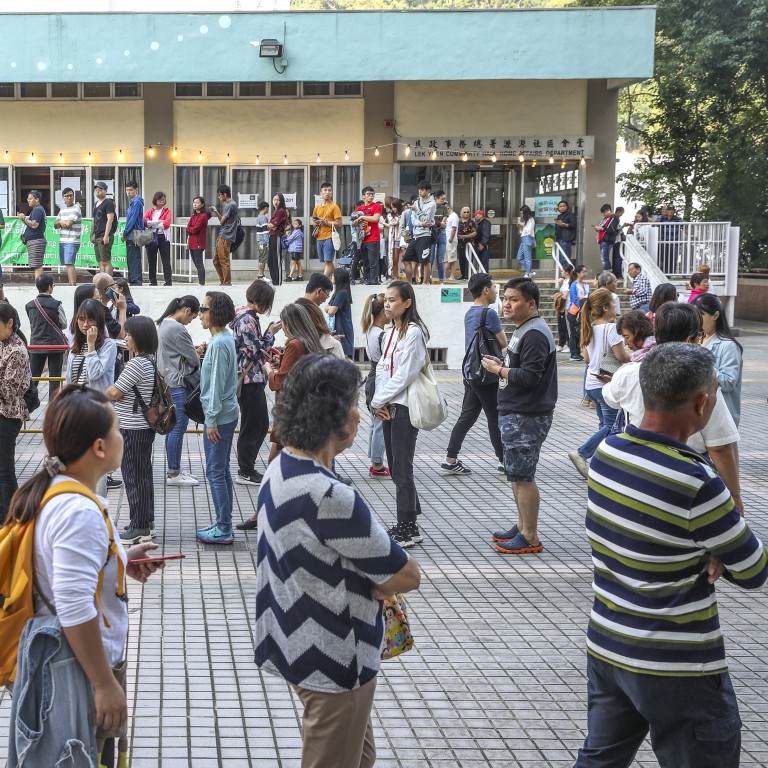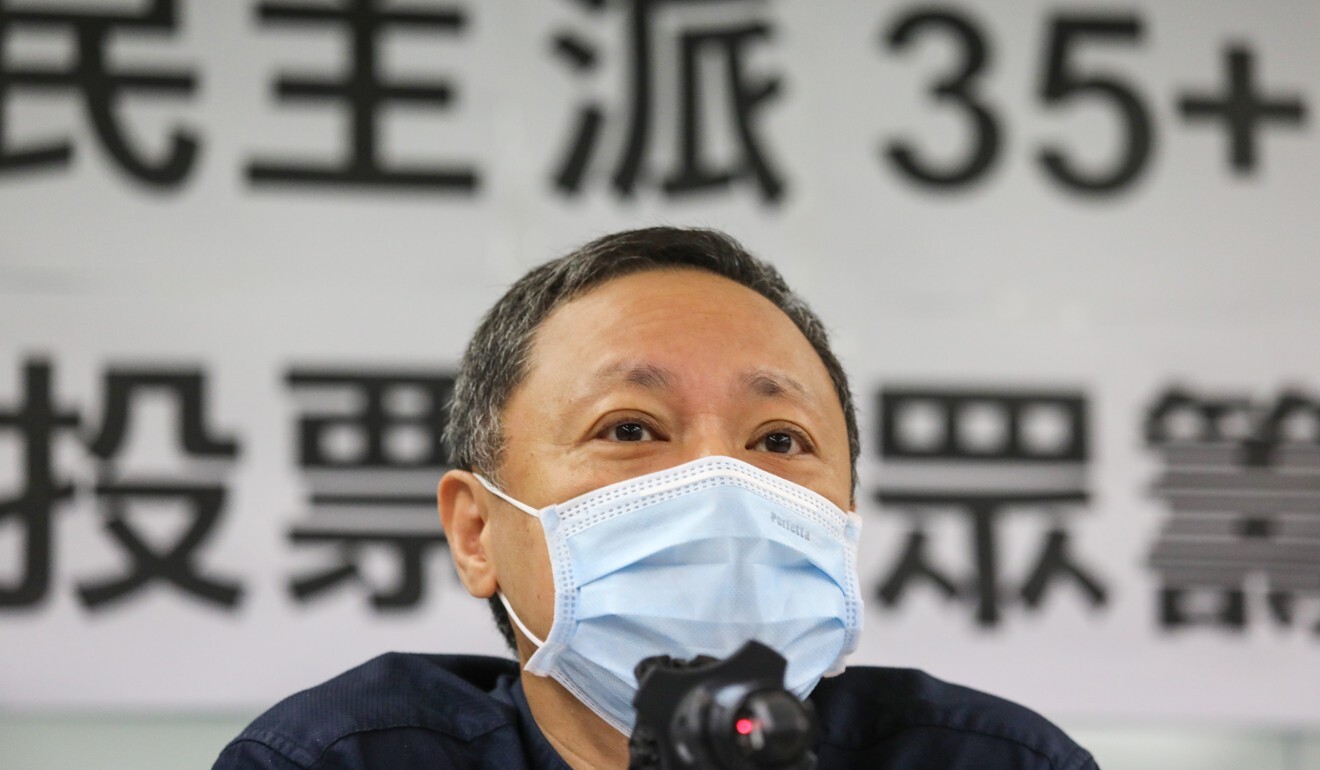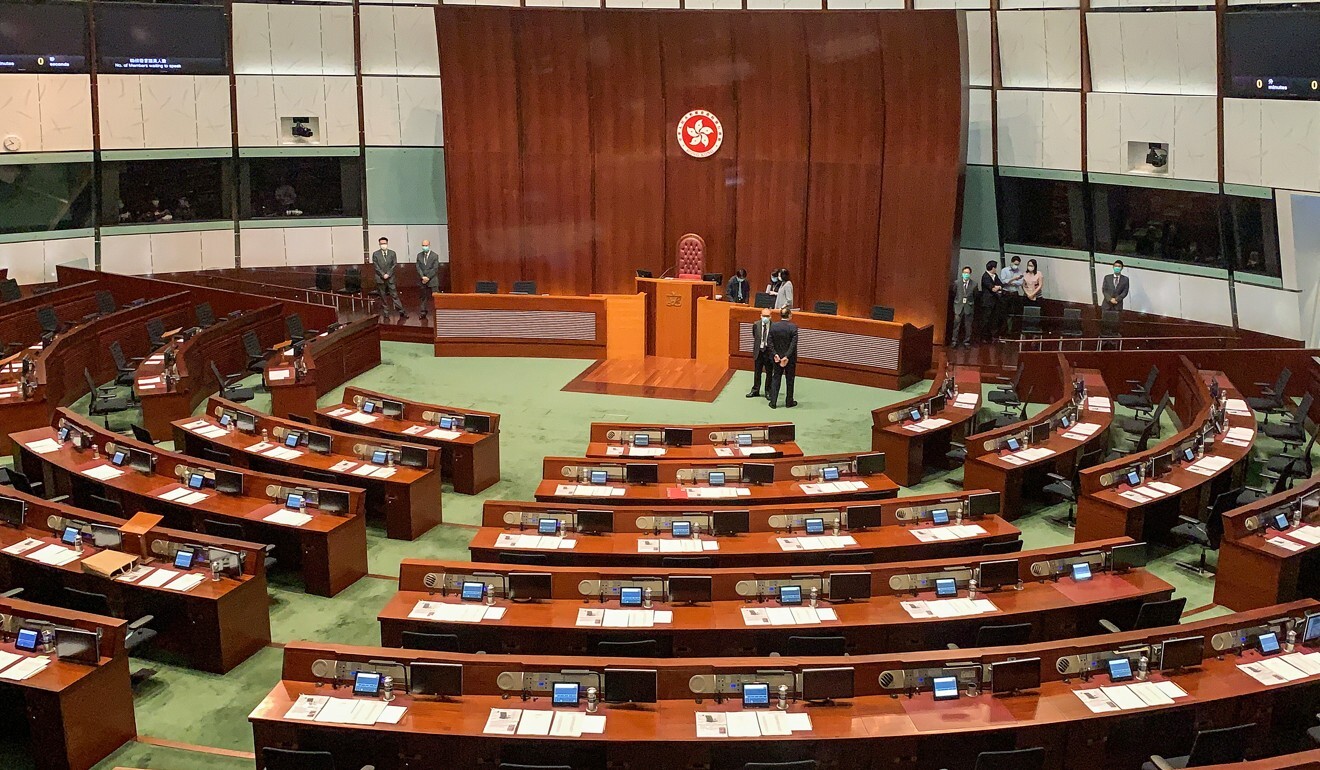
Hong Kong elections: opposition camp plans to raise HK$3.5 million to fund primary ahead of Legco polls
- Group plans to mobilise at least 170,000 people to cast their ballots in July to find out candidates more likely to win seats in September
- With Beijing drafting the national security law, Occupy co-founder Benny Tai says this could be the last time a Hongkonger votes for a candidate of his choice
Hong Kong’s opposition camp has sought to raise HK$3.5 million (US$451,600) to fund its primary election before September’s Legislative Council polls, as it eyes a majority in the city’s legislature.
According to the camp’s plans, the July primary will rank potential candidates by their popularity, while a telephone poll in September will decide how many candidates will be chosen for various constituencies.
The funds raised will be used to finance the telephone poll to be conducted by the Hong Kong Public Opinion Research Institute and to set up polling stations.
Hong Kong ‘cannot bear chaos’, Carrie Lam says on protest anniversary
The camp’s primary will involve all five geographical constituencies of the city and the health services functional constituency seat, which is currently held by pan-democrat Joseph Lee Kok-long.
The legislature’s 70 seats are evenly split among lawmakers directly elected to represent Hong Kong’s five geographical constituencies and those elected by the 29 functional constituencies that represent various professional and trade groups.

In 2016, the opposition camp garnered nearly 60 per cent of the votes in geographical constituencies, winning 19 seats, but managed to win only 10 functional seats, leading to a total of 29.
A majority in Legco would be a “massive constitutional weapon” to veto the budget and disrupt the government, Tai had said earlier.
Can opposition win big at Legco elections or will new national security law ruin plans?
“The powers of the national security law seem limitless, we cannot rule out the possibility,” Tai said.
China’s top legislative body, the National People’s Congress Standing Committee, is drafting a national security law that could be imposed on Hong Kong as early as the end of this month.
The law aims to prevent, stop and punish secession, subversion of state power, terrorism and foreign interference in Hong Kong, though the city’s opposition politicians and legal scholars warn it could be used to suppress dissent and erode freedoms.
Tai said the prospect of the law made it more important for supporters of the opposition to take part in the primary election, saying he hoped at least a tenth of 1.7 million people who voted in favour of the pro-democracy camp last year would take part.
“This could be the last time you can vote for a candidate you favour in Hong Kong,” Tai warned.
Asked if Hong Kong independence advocates could join the primary, Tai said anyone who supported the idea of the pro-democracy camp getting a majority in Legco could take part.

Before people cast their ballots electronically, they need to present copies of their address proof or voters’ registration at polling stations to certify that they are eligible to vote for their respective constituencies.
How a Hong Kong protest evolved into an anti-government movement
While the camp earlier discussed the possibility of pan-democrats voting down the government’s policy address and budget should they gain a majority, Tai said no one in the primary would be required to sign a memo to mark the undertaking.
“We will not be so stupid to give authorities a reason to disqualify those who take part [in the primary],” Tai said.
A few independents in the opposition camp and political party Civic Passion earlier said they would not take part in the primary, accusing it of favouring major parties and incumbent lawmakers.

